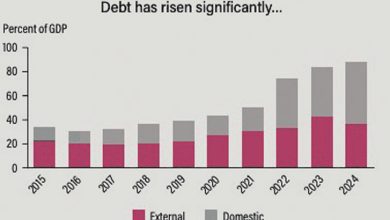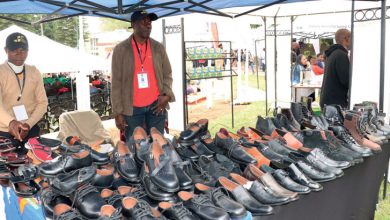SMEs join forces
Malawi Union of Small and Medium Enterprises (Musme) newly elected president James Chiutsi says the formation of the union for small businesses will ensure more effective advocacy for policies.
In an interview following his election on Monday, he said for too long, the voices of SMEs have been disjointed, hindering the ability of partners such as government agencies, development organisations, and non-governmental organisations to provide effective support.
Chiutsi, who is also Chamber for Small and Medium Enterprises executive secretary, said: “A unified approach will lead to enhanced efficiency and a more collaborative environment among stakeholders within the SMEs sector.
“This cohesion will also facilitate advocacy for policies that promote the growth and development of SMEs.”
He said the union will enable SMEs share informationto facilitate collaboration, form joint ventures and address common challenges.
In order to bring normality to the current chaotic SMEs situation and to motivate entrepreneurs in the country, various business associations, cooperatives, groups and individuals have gathered to establish union to fuel small business growth in the country.
According to Musmes concept paper, the existing SME business groups, despite yielding some benefits, have had their own shortcomings either relating to lack of cooperation among themselves, shielding and duplication of support services, and most prominently is lack of one voice to authorities and policy makers.
Malawi Confederation of Chambers of Commerce and Industry’s efforts also do not reach or satisfy majority of SMEs in Malawi, according to the concept paper.
The paper further said these shortcomings are among the reasons for the current attempt for establishing a union to act as a catalyst and main channel for the delivery of core support services to make more entrepreneurs successful and motivating many more to become entrepreneurs.
A FinScope Survey of 2022 indicated that only 10 percent of medium enterprises, five percent of small enterprises and three percent of microenterprises have access to credit from commercial banks.
Donors under Trade, Industry and Private Sector Development Partners are quoted to have urged the Malawi Government to engage investors to establish a specialised private bank for micro, small and medium enterprises (MSMEs) financing to ease access to credit.
The call follows concerns from the development partners chaired by the European Union that the domestic economy is currently facing several risks that limit the participation of MSMEs in the economy.
In a December 2024 key message published on Thursday, the development partners note that domestic credit to the private sector as a percentage of gross domestic product (GDP) is less than 10 percent compared to an average of 34.2 percent for Southern African Development Community countries and 28.4 percent for sub-Saharan Africa.
National Working Group on Trade Policy chairperson Frederick Changaya said in Malawi MSMEs are not really catered for both fiscal as well as monetary policies.
He said: “Countries that have industrialised quickly have grown their MSMEs into corporates through highly targeted interventions such as better packaged credit, sensitisation and civic education, sector-specific business opportunities and other forms of support.”





